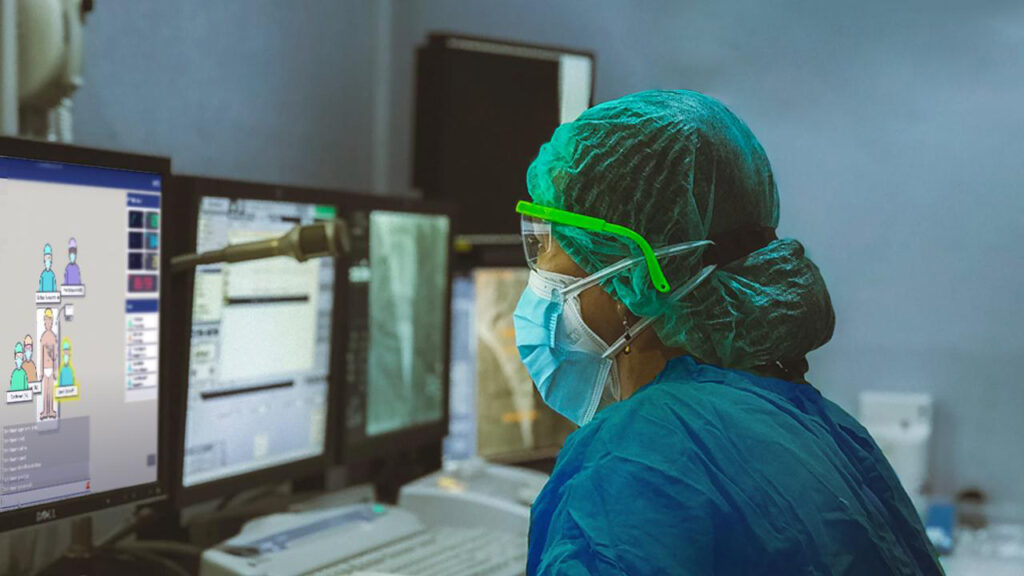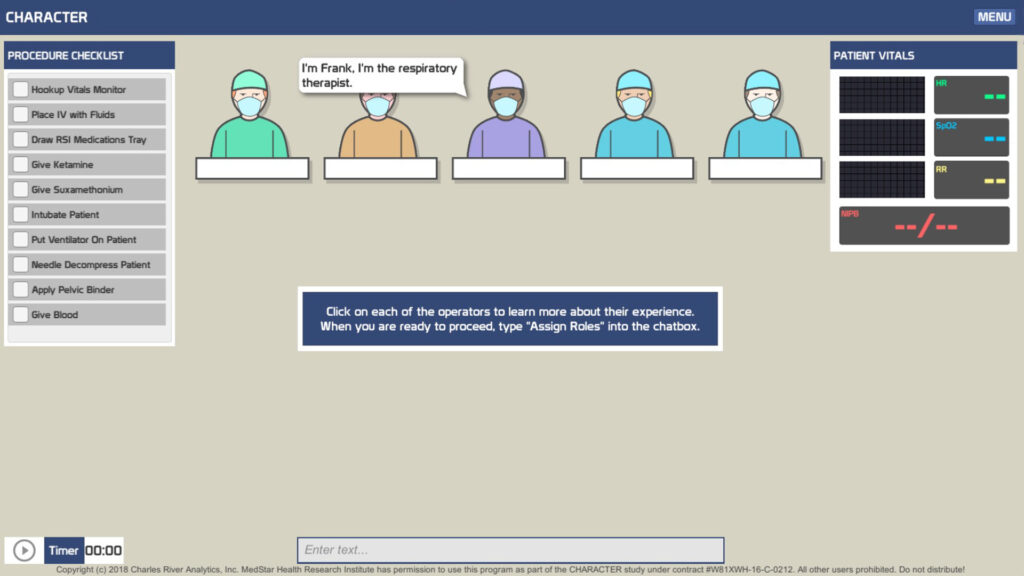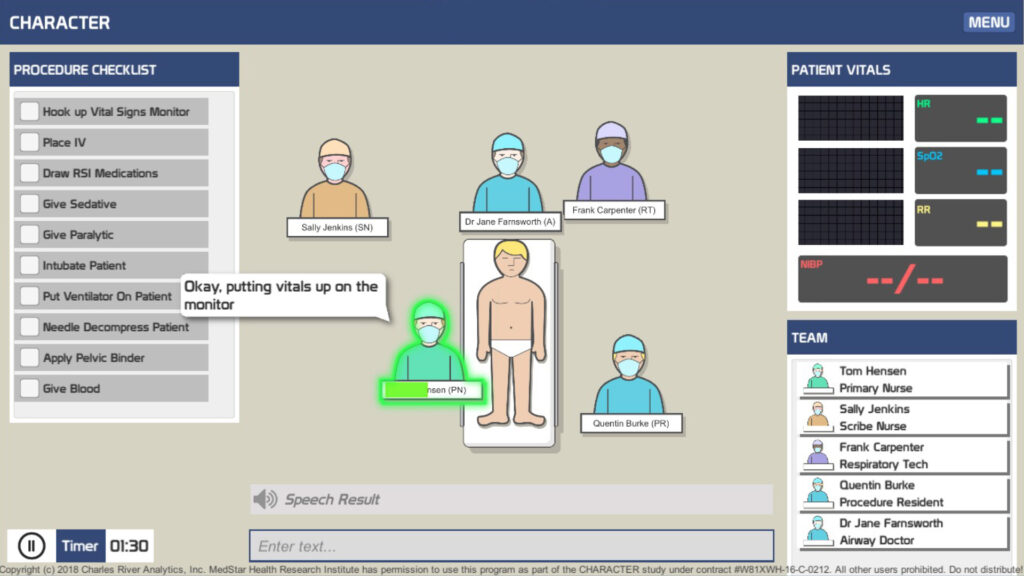CHARACTER
A game to train medical team skills and reduce medical errors
Serious Games
Training programs for medical teams increase patient safety and improve treatment outcomes. Unfortunately, the time commitment required for these training programs leads to limited adoption by medical personnel, both in the DoD and in civilian healthcare.
To make medical team training more accessible, Charles River Analytics developed a serious game called CHARACTER. Serious games use game elements, such as narrative, immersion, and interactivity, to engage players in learning specific knowledge and skills.
“With a small amount of practice, medical staff can significantly improve their teamwork skills and reduce adverse outcomes. This drives down healthcare costs and saves lives. Under CHARACTER, we researched ways to develop games and simulations that efficiently bring team training to health care providers.”

Dr. James Niehaus,
Principal Scientist and Principal Investigator on CHARACTER
Dr. James Niehaus,
Principal Scientist and Principal Investigator on CHARACTER
CHARACTER: Characters Allowing Rehearsal and Assessment of Communication in Team Emergency Response
We developed CHARACTER as an interactive game to train medical teams in critical skills and reduce medical errors in high-intensity trauma treatment. By playing CHARACTER, team members practice skills such as clear communication, team situational awareness, and establishing team roles.
Contact us to learn more about CHARACTER and our other health and medical capabilities.
This work is supported by the US Army Medical Research and Materiel Command under Contract No. W81XWH-16-C-0212. The views, opinions and/or findings contained herein are those of the author(s) and should not be construed as an official Department of the Army position, policy or decision unless so designated by other documentation. In the conduct of research where humans are the subjects, the investigator(s) adhered to the policies regarding the protection of human subjects as prescribed by Code of Federal Regulations (CFR) Title 45, Volume 1, Part 46; Title 32, Chapter 1, Part 219; and Title 21, Chapter 1, Part 50 (Protection of Human Subjects).



